
Georgia’s parliament is set to pass a package of sweeping reforms to labour regulations in the country despite facing opposition from business groups.
The amendments, which passed their second reading in parliament on 17 September, are widely expected to pass in the third and final reading in the coming weeks.
The reforms would see the introduction of some of the most robust protections for workers since the mass deregulation of labour relations in the 2000s. However, unions and labour rights campaigners have complained that some elements of the reforms have been stripped away.
The reforms offer new provisions concerning limits on work hours, mandatory weekly rest time, breaks between shifts, and better protections for interns, part-time employees, and night-shift workers.
The changes, which would include updates to over a dozen Georgian laws, also include non-discriminatory clauses to protect women from unequal pay for equal work. They would also give more leverage to pregnant and child-rearing parents.
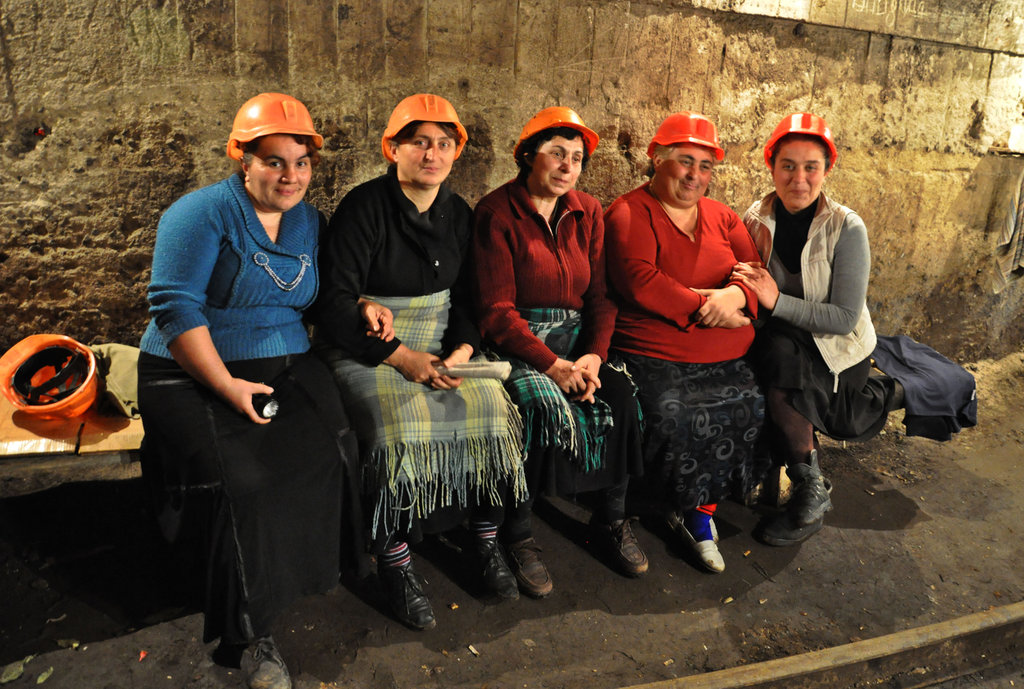
Additionally, state oversight of labour rights would be broadened, something that rights advocates have campaigned hard for as a solution to the number of occupational injuries and fatalities.
Campaigns and protests by workers, unions, and youth activists in recent years over mass layoffs and more so — over occupational fatalities — have brought labour protections to the forefront of public attention in Georgia.
In a 2017 study by ACT, ‘labour rights’ came up on top (29%) among human rights-related areas respondents said they wished to know more about and also at the top (27%) of ‘most frequently violated’ rights named.
‘Full madness’
The Georgian Business Association (BAG), the largest and most vocal opponent of the bill, claimed the new Labour Code would be a setback for the Georgian economy.
BAG’s Executive Director, Levan Vepkhvadze, described the bill as ‘full madness’. He insisted that the EU-Georgia Association Agreement, which includes provisions for labour rights in Georgia, should be implemented with exceptions related to Georgia’s economic situation.
The 2014 agreement, which included a preferential trade regime for Georgia, requires the legal approximation of Georgia’s labour legislation with EU standards.
Important issue for EU-Georgia: protecting rights of workers by anti-discrimination legislation, social dialogue & a robust labour inspection.
I hope that all progressive parties, including ruling party Georgian Dream, will support this bill. https://t.co/DLfNwIdPxS
— Kati Piri (@KatiPiri) June 2, 2020
BAG were unsuccessful in their bid to have a regulatory impact assessment of the bill, a tool used in several countries to analyse the expected impact of new regulations.
BAG’s Supervisory Board includes top executives from the Georgian Industrial Group conglomerate, Bank of Georgia, TBC Bank, pharmaceutical companies Aversi and PSP, the Silk Road Group conglomerate, and Tegeta Motors.
After the amendments’ second hearing on 5 August, Georgian Business Ombudsman Mikheil Daushvili called the package ‘more balanced’ than the original draft but still potentially ‘tough’ for Georgian business. Previously an ardent opponent of the bill, Daushvili invoked Georgia’s EU integration agenda and recent changes in the bill to suggest it was now more acceptable.
A ‘gutted bill’
Three of the seven authors of the new Labour Code have left the parliamentary majority since it was originally floated. Dimitri Tskitishvili, one of those three who currently sits as an independent MP, told OC Media he expected the ruling party to still support it.
In a bid to gain support, Tskitishvili compromised on several provisions, leading some labour rights advocates to raise the alarm over what they said was undue pressure from business groups on the process. Another independent MP, Beka Natsvlishvili, said this had resulted in a ‘gutted bill’.
One of the compromises was to drop the right for workers to hold strikes in solidarity with workers from other enterprises. In an apparent trade-off, the bill would update the Law of Georgia on Trade Union to reduce the minimum number of workers required to form a union from 50 to 25.
Another sticking point in the original draft was a proposed limit on overtime work. During the hearings, Georgian Dream MP Dimitri Khundadze, the Healthcare and Social Issues Committee Chair, called the provision a dealbreaker.
In recent years, a 40-hour weekly cap on working hours has existed only on paper, with many companies registering as having a separate category of ‘specific work’. The loophole has allowed many employers to stretch weekly working hours from 40 to 48 hours without reimbursing additional work as overtime.
The Georgian Trade Union Confederation (GTUC), which unsuccessfully pushed for a 48-hour cap on maximum overtime work per week, also failed to convince others to drop a provision allowing ‘any other objective circumstance’ to justify a dismissal.
A provision to define a minimum wage and also an overtime pay as at least 125% of normal wage were also removed, against the objections of many labour rights advocates.
In late May, the Friedrich Ebert Foundation released a public opinion survey saying that 48% fully supported the idea of minimum wage and 27% ‘partially’ did.
There have also been objections to the fact that the new bill could complicate seeking full compensation after a period of enforced idleness following an unfair dismissal.
Tamar Gabisonia from the GTUC told OC Media that the final version of the law would mean a person would no longer be eligible for compensation for the entire period of enforced idleness if they found new employment while the case was being considered, ‘something that could last for 3 years’.
Fending off the criticism from unions and rights groups over the compromises, Tskitishvili insisted it was important to have a ‘passable’ bill to build on further in the future.
‘There would be no point in adopting a fully European and ILO standard labour code even if we could; it would not have been implementable. What we need in the near future is to work on implementing the legislation we are going to have soon.’
A beefed-up labour inspectorate
One of the most significant changes the bill would bring in would be to strengthen the Labour Conditions Inspection Department and widen its mandate.
Currently a supervisory agency under the Labour and Health Ministry, the department would be transformed into a more independent institution headed by a Chief Labour Inspector.
While the Chief Labour Inspector would still be hired and fired by the Health and Labour Minister, they would be responsible for running an agency overseeing all labour rights in Georgia.
The new department would be able to enter all workplaces, not only those involving heavy and hazardous labour, without a court order or giving prior notice.
They would have a mandate to warn, fine, or in some cases temporarily suspend workplaces over poorly implemented labour rights. Fines would range from ₾200–₾1,000 ($65–$320), depending on annual turnover.
The department has seen its mandate gradually increase in recent years. When it was created in 2015, it operated within a narrow mandate focused on occupational safety; they also had no access to establishments without prior warning or a court order.
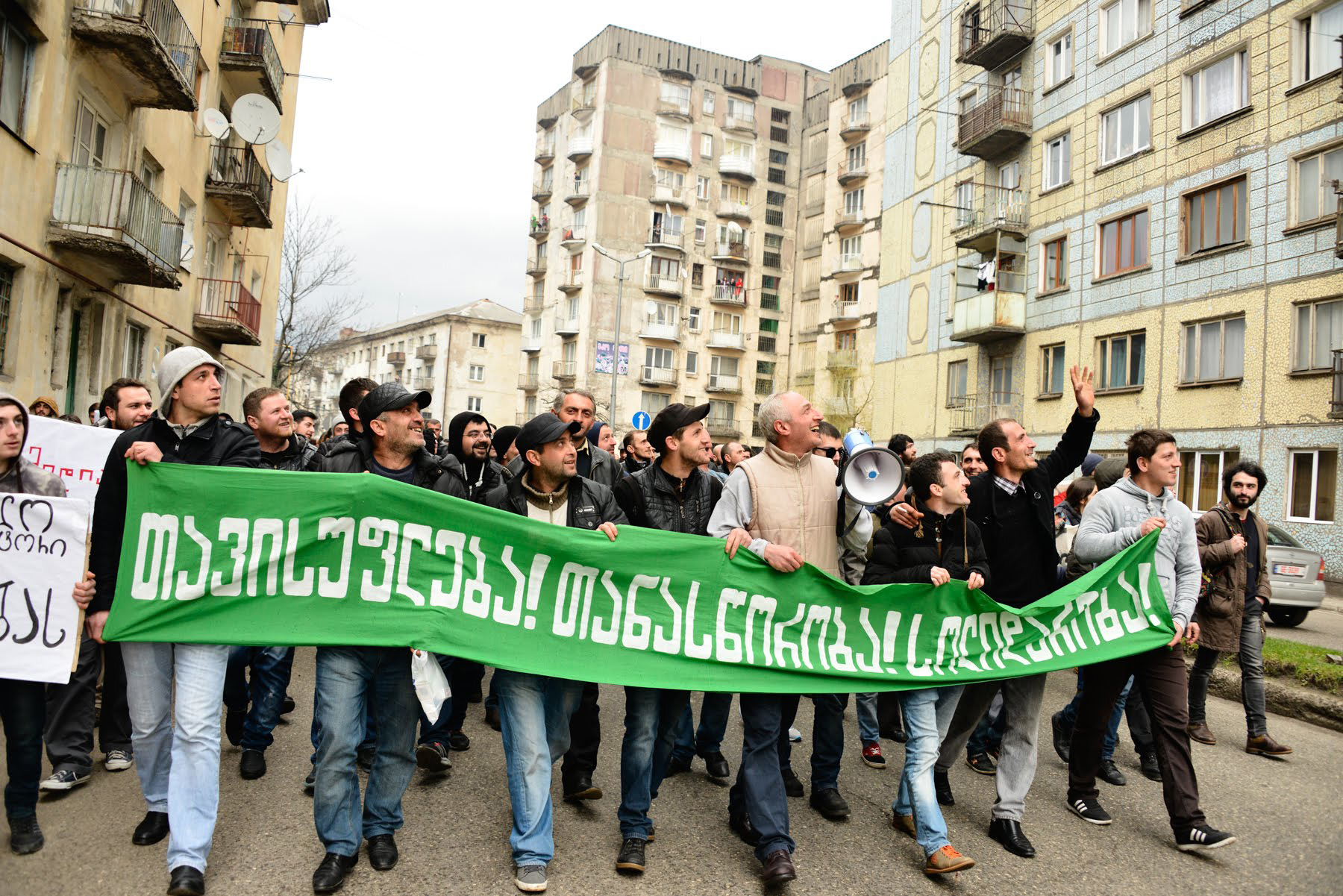
This changed only in September last year after the lawmakers adopted a Law on Labour Safety, granting the department the power to warn or fine employers, and require every economic entity to hire a labour safety specialist.
On 15 July, while the amendments were still being debated in Parliament, the Health Ministry summed up their inspectorate’s five-year work, underlying that compared to 2018, last year fatal casualties at workplaces dropped by 24% while injuries had fallen by 16%.
The ministry attributed the drop to the broadening of the department’s mandate last year.
[Read Human Rights Watch’s opinion on OC Media: A narrow definition of safety harms workers in Georgia]
According to Dimitri Tskitishvili, the inspectorate is soon expected to have about 80–90 inspectors. According to him, the point was not to monitor everyone but for any enterprise to have an expectation that they could be probed for labour rights at any moment.
Provisions against overworking
Another significant change in the new Labour Code would be a guarantee of employees’ consent for overtime work. An employer would also have to justify it.
Overtime pay would be at least 125% of an employee’s normal wage and an employer would have to define deadlines for paying overtime pay.
In a 2019 study by CRRC Georgia, violation of normal work hour was the third most frequently cited problem at work (57%) of those surveyed — following inadequate salary (71%) and violations of labour safety norms (64%).
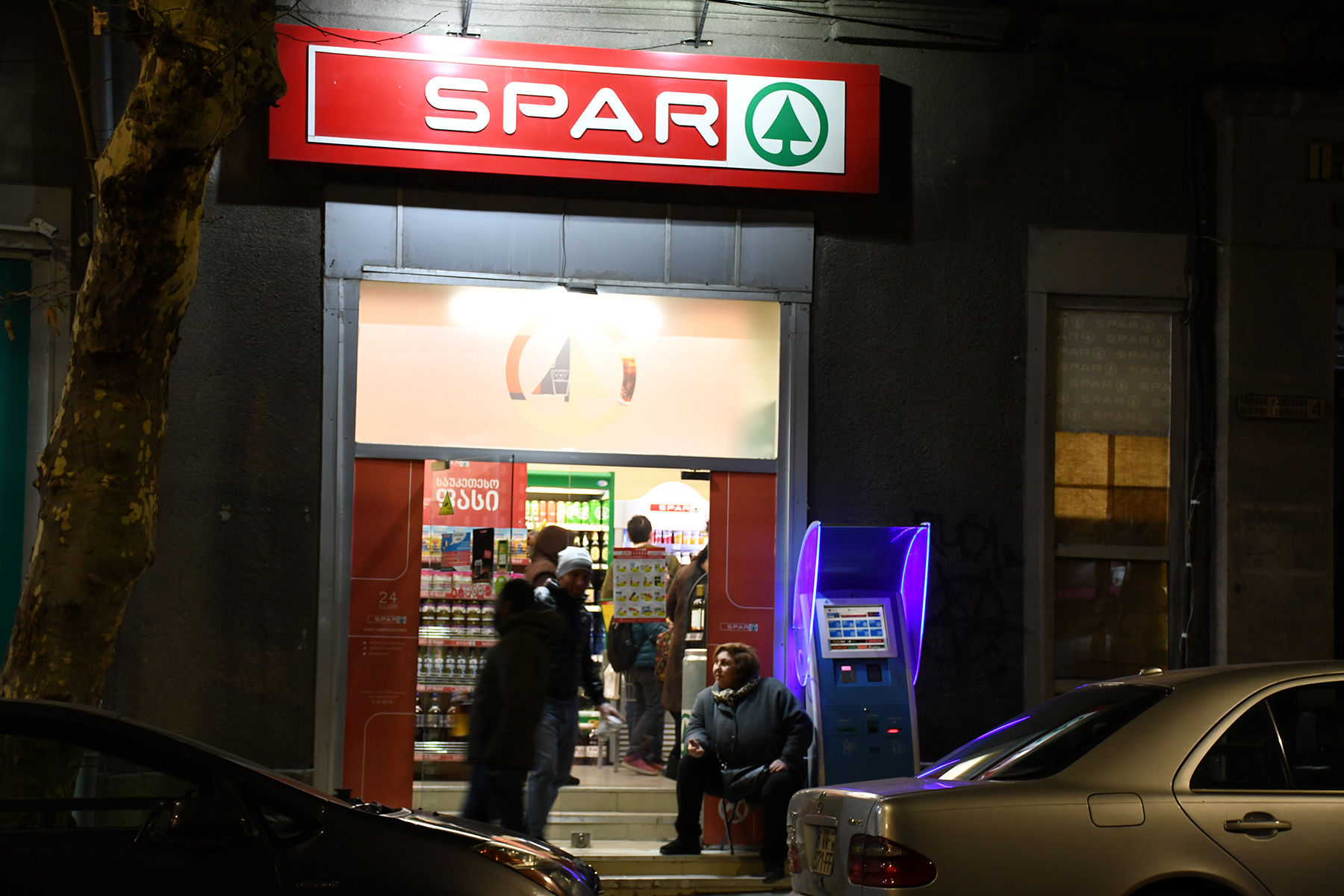
[Read more on OC Media: Working 24 hours straight in Georgia’s supermarkets]
The amendments would prohibit working in two consecutive shifts without rest, except for those working in the mining industry where work time limits would be defined by the Health and Labour Ministry.
The bill would also ensure a break after 6 hours of consecutive work and at least one 24-hour rest period a week, or 48 every two weeks.
The bill would also introduce protections for minors: the normal daily working hours for those aged 14–16 would be 4, and 6 for those between 16–18. It would be unlawful to employ minors for longer than four hours of overtime a week and more than two hours a day.
Tskitishvili insisted the state did not have the proper methodology to account for working hours.
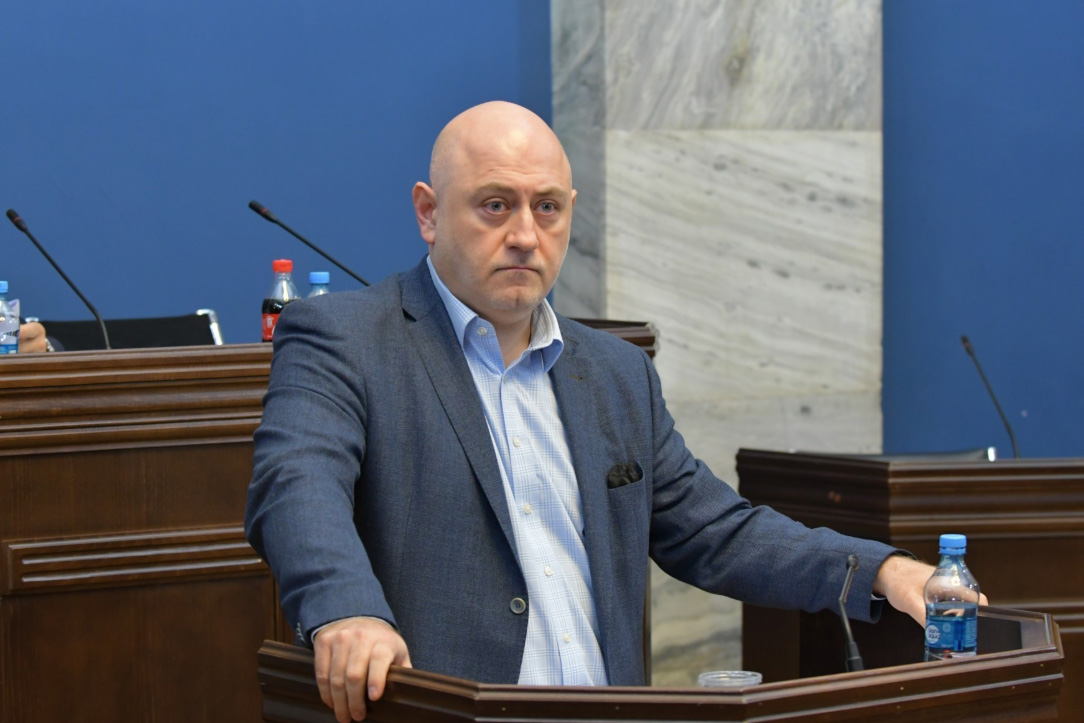
‘Moreover, rights cannot be traded for the economy. It’s wrong, for instance, to ask, what stopping a criminal act would cost. Rights must be protected.’
‘Besides, the current legislation punishes socially responsible businesses when they adhere to labour rights as they are then deprived of the ability to compete’.
Internship, part-time work, and night work
The amended Labour Code would put a six months limit on unpaid internships and a one-year limit for paid internships.
According to MP Dimitri Tskitishvili, employers frequently use interns as cheap labour instead of filling a full-time position, but they ‘will now be a visible subject in labour relations for Georgian legislation’.
The upcoming changes would require a detailed contract with an intern who should not be used to fulfil duties unrelated to their professional development.
With the new Labour Code, dismissing an employee for refusing to move to full-time work or vice versa, unless it is in the original contract, would be unlawful.
The reformed code would introduce a definition of night work (from 22:00 to 06:00), treating the work as a night shift if it included at least three hours in this period. This would also entitle workers to a free medical examination.
However, an attempt to treat night work as overtime did not pass through the hearings.
New provisions for protected groups, parents
Nino Khutsishvili, a lawyer at Georgian Young Lawyer’s Association (GYLA), told OC Media that they supported the bill overall, ‘especially considering the expanded mandate of the inspectorate and improved protections against various forms of [workplace] discrimination’.
According to Khutsishvili, the original draft cited a longer, more specifict list of grounds of discrimination that had been included in the Law of Georgia on the Elimination of All Forms of Discrimination.
However, the strength of the current version, according to her, was its non-exhaustive wording which would enable a victim of discrimination to bring their case to court.
The GTUC criticised the bill for not mentioning maternity and pregnancy as sings of discrimination in employment.
Tamar Gabisonia, a lawyer at the GTUC, told OC Media that the provisions on equal pay for equal work and reducing the pay gap between men and women included in the final version of the bill would remain ‘theoretical’ unless a proper methodology to measure work of equal value was formulated.
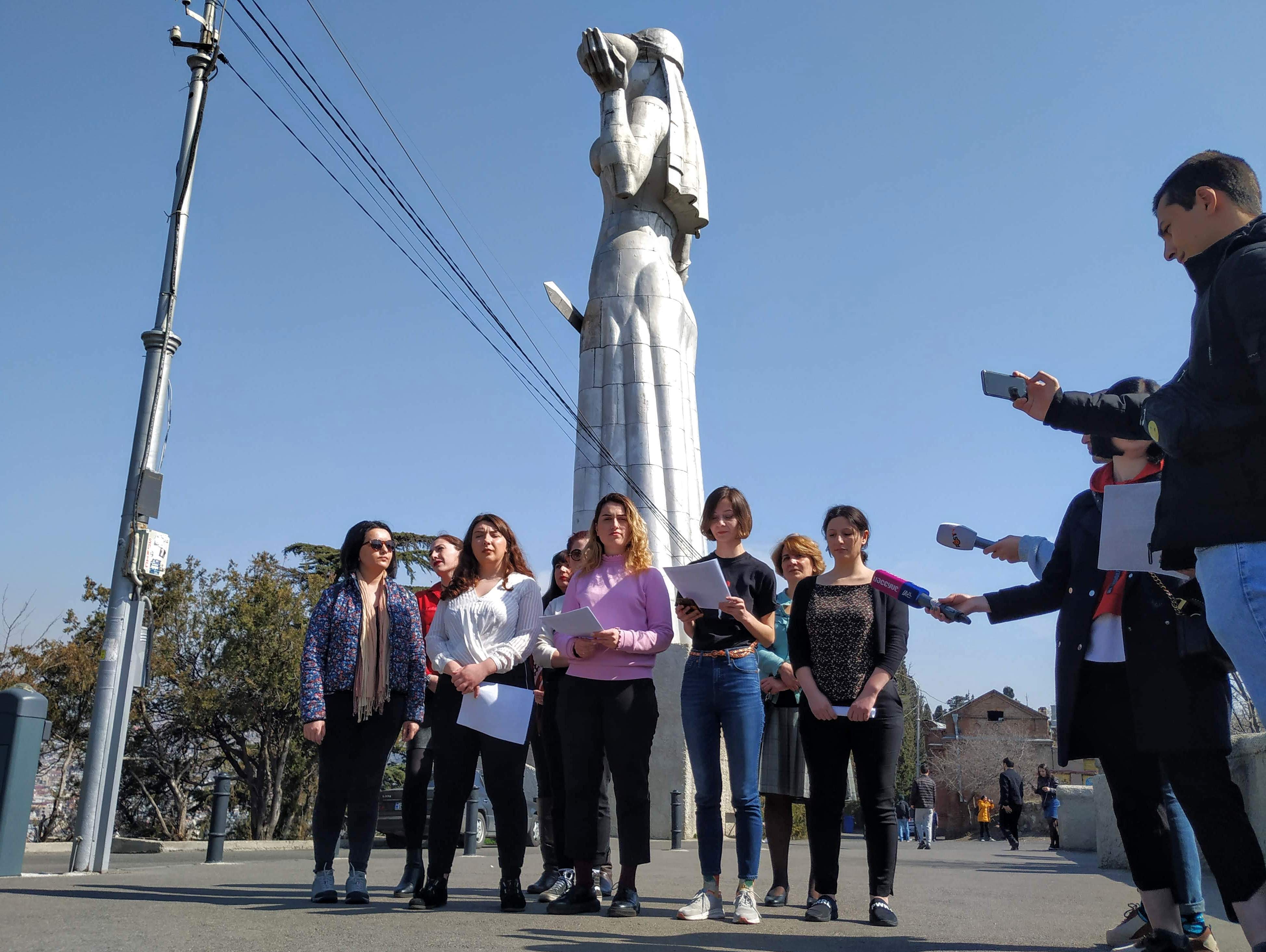
The new Labour Code would provide a working woman with the right to be transferred to a less strenuous position during her pregnancy, but wages would be negotiated between the parties in this case.
The amended code would also guarantee a woman her position after her maternity leave ended.
Beyond a mandatory one-hour break, breastfeeding mothers would have the right to an additional hour if needed, and would have access to free medical examinations during pregnancy.
Currently, new mothers are entitled to take up to 604 days of leave, including 57 paid days.
The upcoming changes would allow a father to use some or all of the 57 paid days off if the mother agreed.
The bill would also grant parents who adopt or have a child through a surrogate the same rights as others.
The new labour regulations would allow local government bodies to substitute national holidays for separate public holidays. The provision is aimed at areas with large ethnic or religious minorities.
The bill also includes a provision on reasonable accommodation for people with disabilities, pushing companies to adapt workplaces to the needs of people with disabilities when possible.









